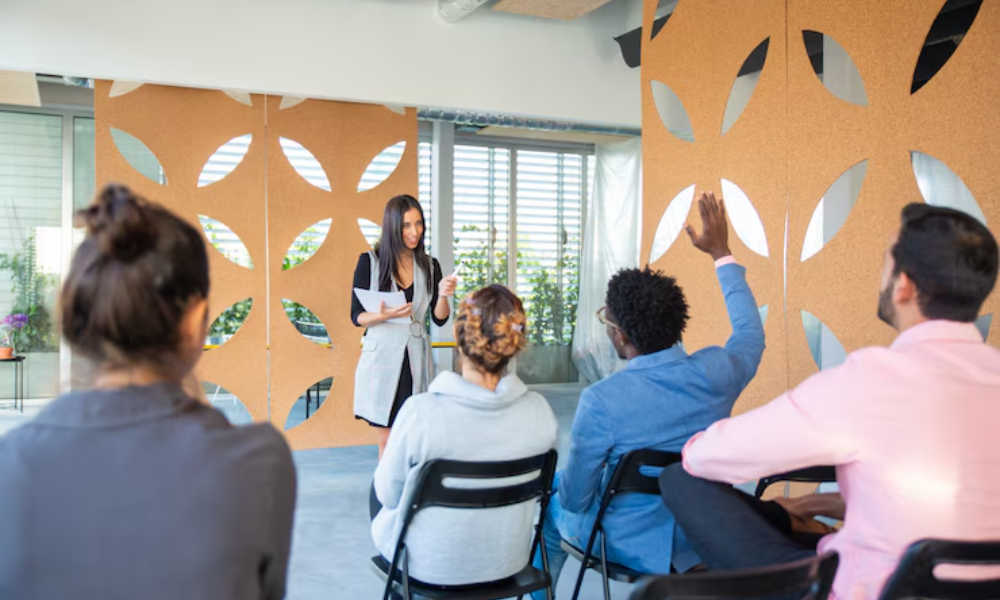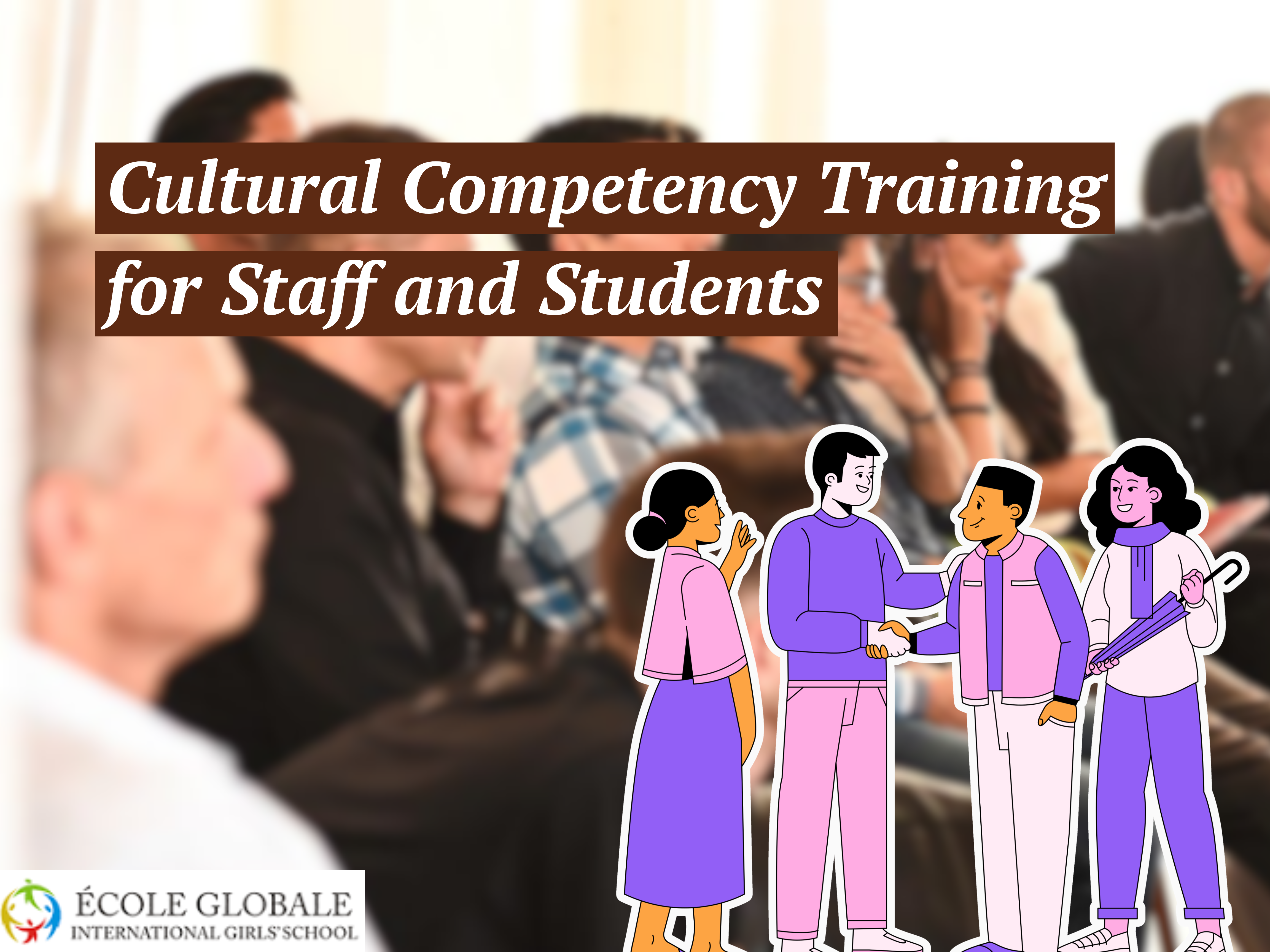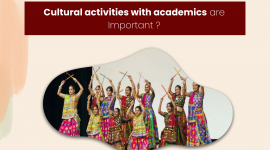Cultural competency has become a pivotal component of educational environments worldwide, reflecting the globalized nature of our societies.
This is particularly true in the context of boarding schools in Dehradun, where diverse student populations necessitate an inclusive, respectful, and culturally aware atmosphere.
Ecole Globale International Girls’ School, a premier school in Dehradun, recognizes the importance of cultural competency training for both staff and students to foster an environment conducive to holistic education and personal growth.
The Importance of Cultural Competency in Boarding Schools

Understanding Cultural Competency
Cultural competency refers to the ability to understand, respect, and effectively interact with people from different cultures, ethnicities, and social backgrounds.
In the context of boarding schools, it involves recognizing and valuing the diverse backgrounds of students and staff, adapting teaching methods and administrative policies to be inclusive, and promoting a school culture that embraces diversity.
Why Cultural Competency Matters
- Enhancing Educational Outcomes: Research has shown that students learn better in environments where they feel understood and respected. Culturally competent educators can tailor their teaching strategies to meet the diverse needs of their students, leading to improved academic performance.
- Promoting Inclusivity and Respect: Boarding schools in Dehradun host students from various parts of India and abroad. Cultural competency training helps in promoting an inclusive environment where all students feel valued, reducing incidents of discrimination and bullying.
- Preparing Global Citizens: In today’s interconnected world, cultural competency is a crucial skill. By fostering this competency, boarding schools equip their students to thrive in diverse workplaces and communities in the future.
- Improving Communication and Relationships: Effective communication is key to a harmonious school environment. Cultural competency training helps staff and students understand different communication styles and cultural nuances, improving interpersonal relationships.
Implementing Cultural Competency Training at Ecole Globale

Training for Staff
- Workshops and Seminars: Regular workshops and seminars conducted by experts in cultural studies can help staff understand the importance of cultural competency. These sessions can cover topics such as cultural awareness, bias reduction, and inclusive teaching strategies.
- Inclusive Curriculum Development: Staff can be trained to develop and implement an inclusive curriculum that reflects the diverse backgrounds of students. This can include incorporating literature, history, and examples from various cultures into the curriculum.
- Professional Development Programs: Continuous professional development programs focusing on cultural competency can keep staff updated on best practices and emerging trends in the field. This can include online courses, certifications, and attending relevant conferences.
- Mentorship Programs: Senior staff members who have experience in handling diverse classrooms can mentor newer staff, providing them with practical tips and guidance on fostering an inclusive environment.
Training for Students
- Cultural Awareness Workshops: Regular workshops and interactive sessions can help students understand and appreciate different cultures. These sessions can include activities such as cultural simulations, storytelling, and group discussions.
- Diversity Clubs and Committees: Establishing clubs and committees focused on celebrating diversity can encourage students to take an active role in promoting cultural competency. These groups can organize events, cultural exchanges, and awareness campaigns.
- Curriculum Integration: Integrating cultural competency into the curriculum through subjects like social studies, literature, and history can help students learn about different cultures in a structured manner.
- Peer Education Programs: Training students to be peer educators can have a significant impact. These student leaders can facilitate discussions, mediate conflicts, and promote a culture of respect and inclusion among their peers.
Challenges and Solutions in Cultural Competency Training

Challenges
- Resistance to Change: Some staff and students may resist changes, preferring traditional methods and familiar environments.
- Lack of Resources: Implementing comprehensive cultural competency training requires resources, including time, funding, and access to experts.
- Maintaining Consistency: Ensuring that cultural competency training is consistent and ongoing can be challenging, especially in a dynamic school environment.
Solutions
- Creating a Supportive Environment: Encouraging open dialogues and creating a supportive environment where staff and students feel safe to express their concerns and suggestions can help overcome resistance.
- Allocating Resources: Schools must allocate sufficient resources for training programs. This can involve seeking external funding, partnerships, and integrating training costs into the school budget.
- Continuous Evaluation and Feedback: Regularly evaluating the effectiveness of training programs and incorporating feedback can help maintain consistency and make necessary adjustments.
The Role of Leadership in Promoting Cultural Competency

Visionary Leadership
Leadership plays a crucial role in promoting cultural competency in boarding schools. School leaders must have a clear vision and commitment to fostering an inclusive environment.
This involves setting policies, leading by example, and ensuring that cultural competency is a core value of the institution.
Policy Development
Developing and implementing policies that promote cultural competency is essential.
These policies can include anti-discrimination measures, inclusive hiring practices, and guidelines for culturally responsive teaching.
Encouraging Community Engagement
Engaging the broader school community, including parents and alumni, in cultural competency initiatives can enhance their effectiveness.
Schools can organize cultural events, open houses, and community discussions to foster a sense of belonging and mutual respect.
Case Studies and Best Practices

Case Study: Ecole Globale International Girls’ School
At Ecole Globale International Girls’ School, cultural competency training is an integral part of the educational experience. The school has implemented several initiatives to promote cultural awareness and inclusivity:
- Global Exchange Programs: Ecole Globale has established exchange programs with schools worldwide, providing students with opportunities to experience different cultures firsthand.
- Cultural Celebrations: The school organizes regular cultural celebrations, where students showcase their heritage through music, dance, cuisine, and traditional attire.
- Inclusive Curriculum: The curriculum at Ecole Globale includes diverse perspectives and content, ensuring that students learn about various cultures and histories.
- Student-Led Initiatives: Students are encouraged to lead initiatives that promote cultural understanding, such as cultural fairs, diversity clubs, and peer education programs.
Best Practices from Other Schools in Dehradun
- Welham Girls’ School: Welham Girls’ School has integrated cultural competency into its core values. The school organizes intercultural dialogue sessions and has a robust mentorship program where senior students mentor juniors on cultural sensitivity.
- The Doon School: The Doon School emphasizes global citizenship through its curriculum and extracurricular activities. The school has partnerships with international organizations that promote cultural exchanges and global learning.
- Woodstock School: Woodstock School offers a multicultural curriculum and hosts an annual international festival where students celebrate their diverse backgrounds. The school also provides professional development for staff on inclusive teaching practices.
Measuring the Impact of Cultural Competency Training

Surveys and Feedback
Conducting regular surveys and seeking feedback from students, staff, and parents can provide valuable insights into the effectiveness of cultural competency training programs. These surveys can assess participants’ attitudes, behaviors, and perceptions regarding cultural diversity.
Academic and Behavioral Outcomes
Monitoring academic performance and behavioral incidents can help measure the impact of cultural competency training. Improved academic outcomes and a reduction in discriminatory incidents can indicate the success of the training programs.
Long-term Tracking
Long-term tracking of students’ success in diverse environments beyond school can also provide valuable data. Alumni surveys and follow-up studies can help schools understand the long-term benefits of cultural competency training.
Future Directions for Cultural Competency Training

Embracing Technology
Incorporating technology into cultural competency training can enhance its effectiveness. Virtual reality (VR) experiences, online courses, and digital storytelling platforms can provide immersive and engaging learning experiences.
Collaborations and Partnerships
Collaborating with local and international organizations that specialize in cultural competency can bring new perspectives and resources to schools. Partnerships with universities, NGOs, and cultural institutions can enhance training programs.
Expanding Scope
Expanding the scope of cultural competency training to include topics such as social justice, equity, and global citizenship can further enrich students’ learning experiences and prepare them for the complexities of the modern world.
Conclusion
Cultural competency training is essential for creating an inclusive, respectful, and effective learning environment in boarding schools in Dehradun.
By investing in comprehensive training programs for staff and students, schools like Ecole Globale International Girls’ School are paving the way for a more inclusive and globally aware generation.
The benefits of such training extend beyond the classroom, preparing students to thrive in a diverse and interconnected world.
As schools continue to evolve, cultural competency will remain a cornerstone of holistic education, fostering environments where every student can flourish.









